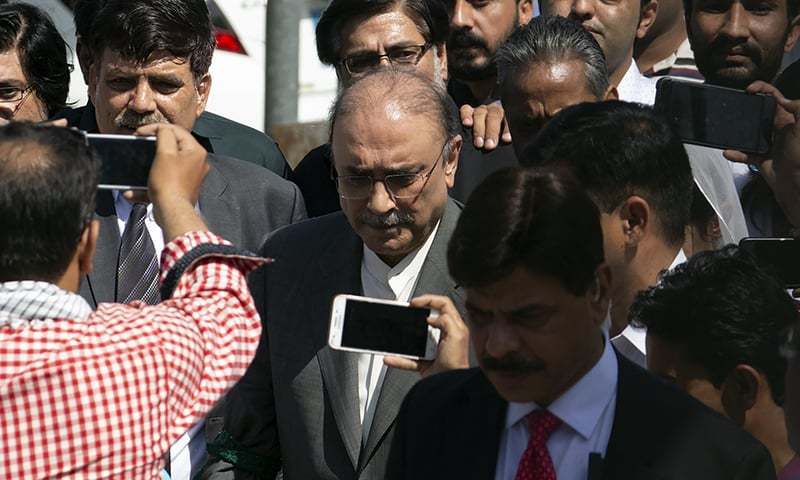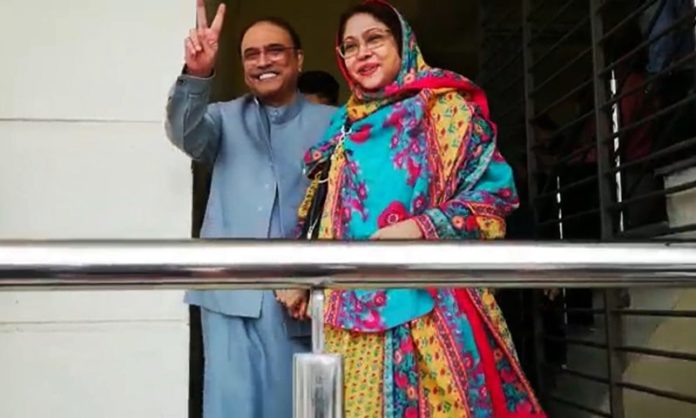Imran Khan has made the fight against corruption a central if not the central point of his government’s political program. That is at it should be. Relatively a young state, Pakistan was created in 1947 with the intention voiced by Quaid-e Azam to save Indian Muslims from Hindu rule in a majority-based political system and thus secure them a chance to improve their socio-economic standing. The leadership of the Muslim League consisted mainly of feudal landowners, some of whom had gone into politics or taken administrative jobs, instead of improving the lot of the Muslim masses their primary aim is to favour their own families, clan and biradris. Many of them don’t seem to comprehend that favouring their family members, taking advantage of their political or administrative position and accepting bribes and kickbacks is called corruption. Unfortunately their value system recognises this as not only normal and neither an option but compulsory requirement to take care of the family and clan. When reprimanded they certainly do not seem to understand what the problem is. Developing countries with feudal and tribal elements in their societies have a major problem in that many people don’t recognize the illegality of it.
Corruption does not afflict Pakistan alone; even the ‘developed’ ones have corruption. However there is at least a commonly shared definition about what corruption is and that it is illegal and has to be fought against. Even those who try to be honest succumb to the systemic presence of corruption according to the saying “if you can’t fight them join them”. As a result of decades of unabated corruption Pakistan ranks 117 out of 180 countries in the International Transparency report for 2017. Since its foundation, Pakistan has witnessed corruption regularly, but during its 70-year history, the most corrupt era was 2008-2013 (under PPP rule), when it was estimated to top US$94 billion. This has been exposed in the “Fake Accounts” case in great detail by the JIT but together under the instructions of the Supreme Court (SC) to ferret out those involved. Pakistan has been used by its ruling elite as a self-serving shop where land, forest, water and other natural resources have been stolen and exploited. The economy of the country has suffered and is on life support, poverty is growing.
Given this situation Imran Khan’s program of fighting corruption is timely and indispensable. But it is a difficult task as has been described before when laws are not implemented and corruption has kept into the rank and file of state and financial system. The JIT squarely points the finger out former President of Pakistan Asif Ali Zardari as the linchpin along with, his sisters Faryal Talpur and Azra Fazal Pechuho, Zardari’s aide Khawaja Anwar Majeed and his sons Khawaja Niymar Majeed and Khawaja Mustafa Majeed. For money laundering 29 fake accounts were registered in Summit Bank, Sindh Bank, and United Bank Limited under people’s names who themselves were not aware of those accounts. Over 20 Benami accounts are also known by today to have been opened and used to transfer billions of rupees during the tenure of the Nawaz Sharif government in 2014, 2015 and 2016, all this money has been acquired from unknown and certainly illegal sources like bribes, kickbacks and similar machinations.

In December 2018 the JIT report presented uncovered a nexus of politicians and private property tycoons, namely Zardari group, Omni group and Bahria Town. As a result the SC banned the trading and transfers of the properties of the Zardari Group, Bahria Town and Omni Group following the revelations by the court. Putting the names of the accused on the ECL list was a logical conclusion if they were to be prevented from leaving the country in a rush. The findings of the JIT disclosed the extremely brazen manner the amassed money was successfully hidden with the help of a coterie of bankers and banks and others that must have cooperated in the crime. It will be difficult took to prove all the fraud but for the sake of the country it must be done.
One can already see that this understanding of justice limits the idea to its material dimension. With parliamentarians and politicians mainly feudals and thus understanding the ‘common good’ as to what is good for themselves, their families, their clans, associates and friends they produce laws (and pass Resolutions in Parliament) that serve their welfare in the first place instead of the welfare of the country and all its people. Justice in Islam is a central category; it is so important that “JUST” is one of the beautiful names of God. The Quran in many places gives examples and even rules as to what justice means and how it is to be administered. An honest man can always prove where his money comes from and if he can’t then there is something fishy. In such cases a ‘reversed burden of proof’ should be the solution. Let the owner explain where, when and how he has acquired the money, land or other assets, and if and how he has paid taxes commensurate to such in case. In cases when the ownership cannot be established the asset should be taken into state custody until the ownership and acquisition details are cleared.
It is not only necessary to prove the fraud committed but to recover the stolen money and other assets as well. Pakistan has been robbed for decades and is bleeding, resources have been snatched. If we expect our international friends to support us with money and others as they have pledged we have to make our own credible effort to recover stolen money to bring the economy back on track. That was the intention especially of China when they were approached for help. China is a country with much of the same corruption problems that Pakistan has but the Chinese government has found effective ways to fight it. In China the list of the elite brought (and being brought) to justice is long. While we cannot probably go to the extent of shooting the crooks out of hand as many would like to as China has frequently done, particularly targeting the corrupt elite, learning from China’s efforts and experiences is one of the demands that our friends have attached to their support package. It is not an unreasonable demand and will have to be acted upon. Neither China wants its investment in Pakistan to be wasted nor can Pakistan afford to waste more.
That is why it is important that the fight is going on. If the Zargari’s and their fellow comrades in crime are left untouched the moral message of such a disaster would be devastating. It would amount to approval of their dealings and act as an invitation to others to do the same. In future, the circle of those under investigation will have to be widened and include senior bureaucrats, serving and retired, civilian and military. For the courts and the other institutions involved it may be sometimes difficult to keep the process balanced given the amount of fraud and the impertinence of the fraudsters. It is a real herculean task to clean Augean’ stable. But it is the only credible way towards a “Naya Pakistan”. As in Greek mythology the hero Hercules had to clean the stables a task that was considered impossible and because of the dirt and stink, degrading he succeeded. For Imran Khan and his government there are no mythological powers that help to do what has to be done. But he is honest in his endeavour. It would be enough if the honest Pakistanis support him.
Let us not forget the man who will retire as Chief Justice in a few days. Saqib Nasir, you are a real hero for the people of Pakistan. You are leaving behind a legacy which your successors will have no option but to emulate for the good of Pakistan.




